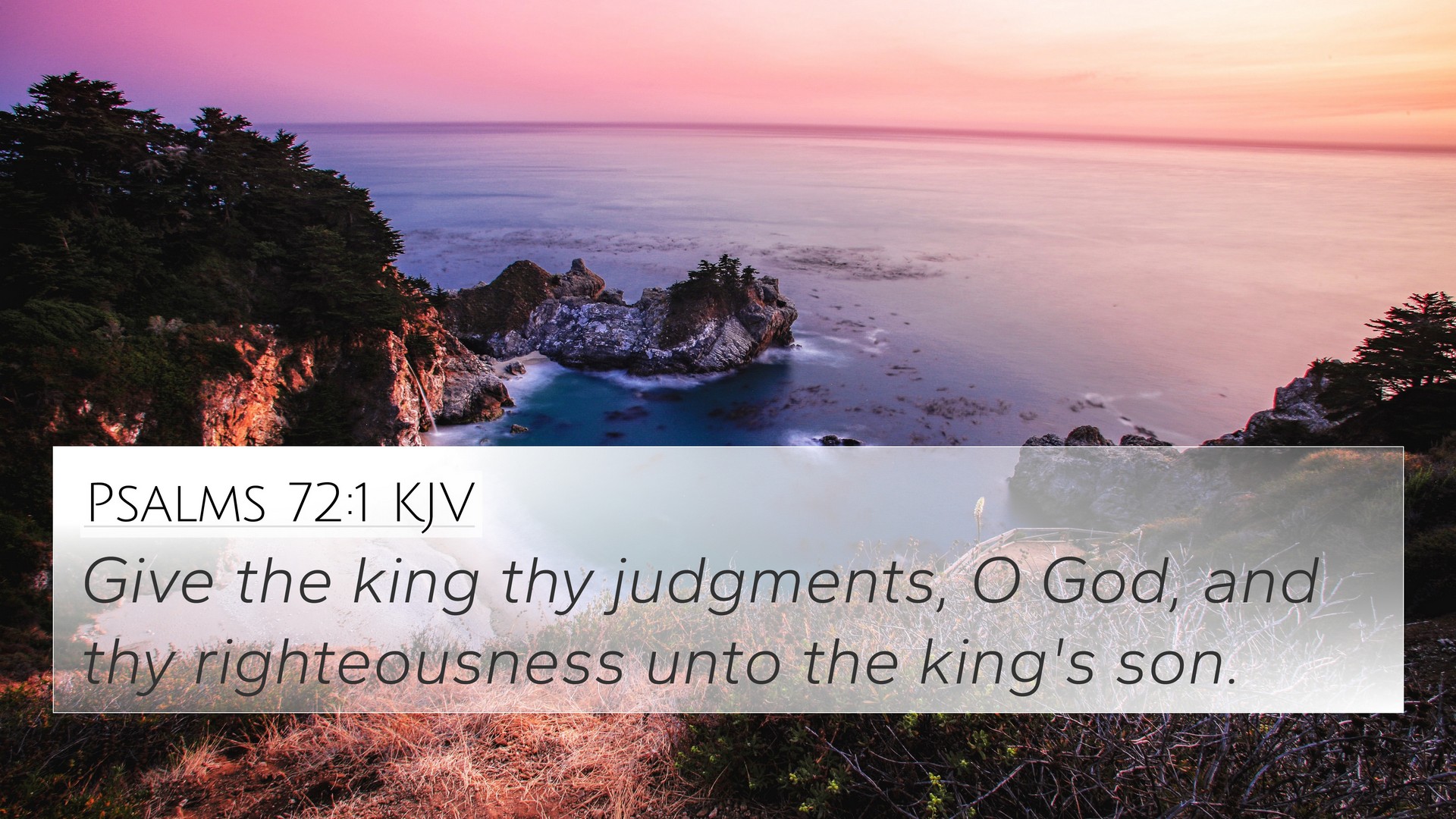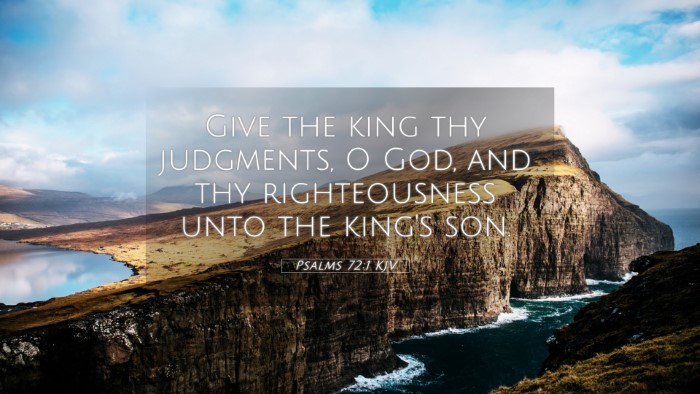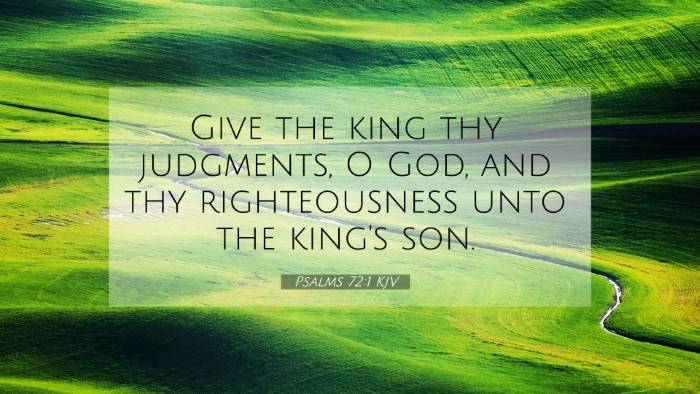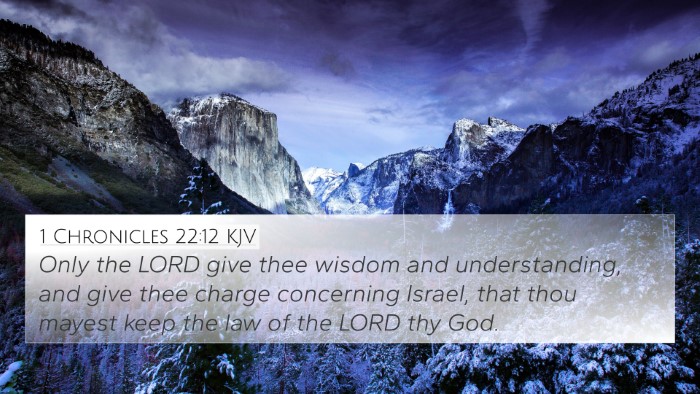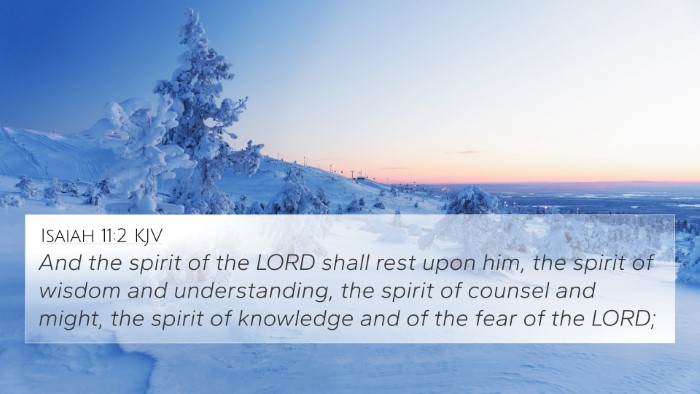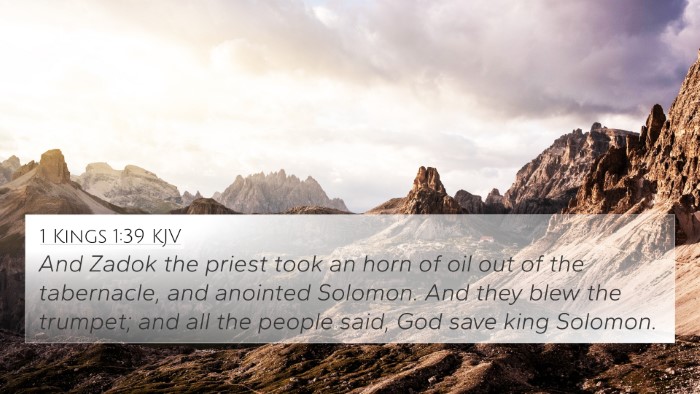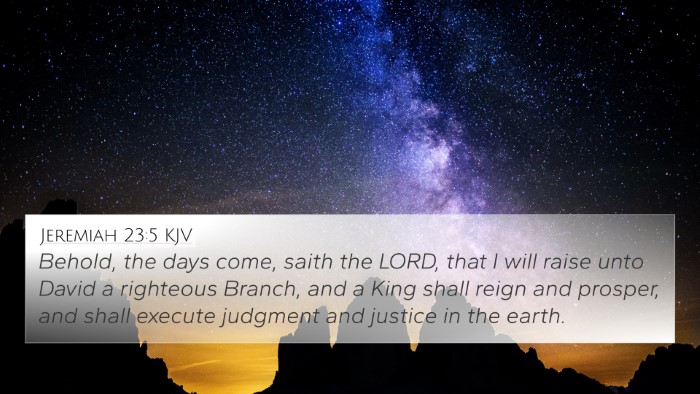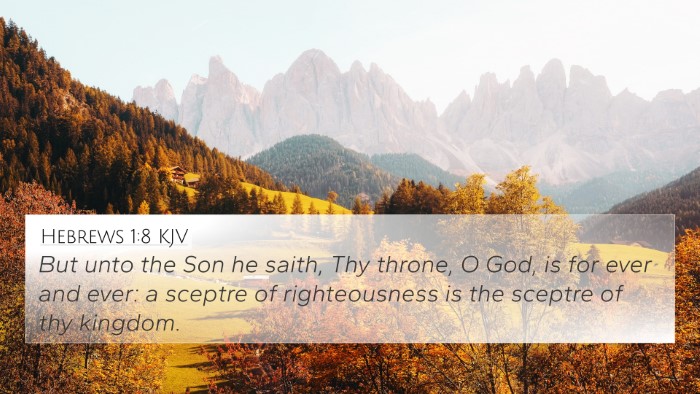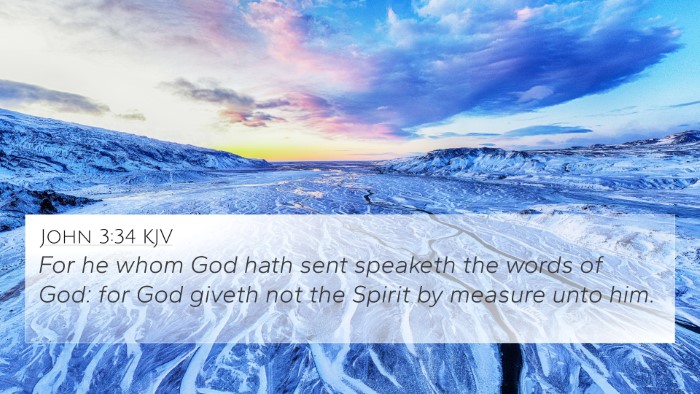Psalms 72:1 - Interpretation and Meaning
The verse Psalms 72:1 is a significant prayer for the king and a plea for divine assistance in ruling. It reads:
"Give the king Your judgments, O God, and Your righteousness to the king’s son."
Summary of the Verse
This verse reflects a request for God’s wisdom and righteousness to guide the king and his heir. The psalm embodies a deep yearning for just leadership, aligning the ruler’s heart with God’s standards for justice and equity.
Commentary Insights
Matthew Henry's Commentary
Matthew Henry emphasizes that this psalm is often associated with Solomon’s reign, focusing on the expectations of kingship according to God's will. He highlights that:
- The Importance of Divine Guidance: The psalmist acknowledges that true judgement comes from God. This request signifies an understanding that human wisdom is insufficient.
- Righteousness as a Foundation: The plea for righteousness indicates that a kingdom flourishes under godly governance, contrasting secular power with divine authority.
- Generational Responsibility: Mentioning the king’s son indicates the importance of righteous legacy in leadership, ensuring future rulers also adhere to divine principles.
Albert Barnes' Notes
Albert Barnes interprets the verse as a formal request for God’s assistance and support:
- Judicial Functions: The king is seen as a representative of God's justice on earth, tasked with making decisions that echo divine laws.
- The Role of the King: The leaders are not merely political figures; they are to act as God's instruments, reflecting His righteousness in their judgments.
- Connection to the Messiah: This verse is often seen as a prophetic hint toward the coming of the Messiah, illustrating the ultimate King who will fulfill these ideals completely.
Adam Clarke's Commentary
Adam Clarke adds layers of understanding regarding the regal context of this psalm:
- Spiritual and Temporal Authority: Clarke points out the dual nature of kingship in Israel, which was both a spiritual and secular role—mirroring the relationship between God and His people.
- Divine Right to Rule: The request implies an understanding that God's favor is essential for a ruler’s success, establishing a monarch directly accountable to divine will.
- Symbolism of the Crown: The king’s son symbolizes continuation and hope for a reign characterized by godliness, reinforcing the idea that true power comes from God.
Cross-References and Connections
This verse is richly connected with various other scriptures, providing a deeper understanding of its themes:
- 2 Samuel 23:3: Highlights the importance of ruling justly as the voice of God.
- Isaiah 9:6-7: Proclaims the coming of a just king, emphasizing peace and the administration of righteousness.
- Proverbs 21:1: Illustrates that the king's heart is in the hands of the Lord, echoing the need for divine influence in leadership.
- Psalm 89:36-37: Speaks of the eternal nature of a king's rule, connecting to the everlasting kingdom that will be established by the Messiah.
- Jeremiah 23:5-6: Prophecies about the righteous branch from David and the fulfillment of justice.
- Romans 13:1: Discusses the divine ordinance of government, affirming that rulers are established by God.
- Luke 1:32-33: Refers to Jesus as a king who will reign forever, connecting to the hope expressed in Psalms 72:1.
Thematic Connections
This psalm presents several significant themes that resonate throughout the Bible:
- Justice and Righteousness: The call for divine judgments aligns with themes found in many scriptures emphasizing just governance.
- Divine Sovereignty: It affirms God's role as the ultimate authority in establishing and guiding rulers.
- Legacy of Leadership: The mention of the king's son indicates the importance of wise and righteous leadership through generations.
- Hope in Messiah: This psalm foreshadows the perfect rule of Christ, the ideal king whose reign embodies justice and peace.
Concluding Thoughts
Psalms 72:1 beautifully encapsulates a timeless prayer for leadership, emphasizing the necessity for a king to seek God's wisdom and righteousness. Through cross-referencing and understanding related scriptures, we can see a broader biblical narrative advocating for just and godly governance that ultimately points us to the perfect rule of Jesus Christ.
